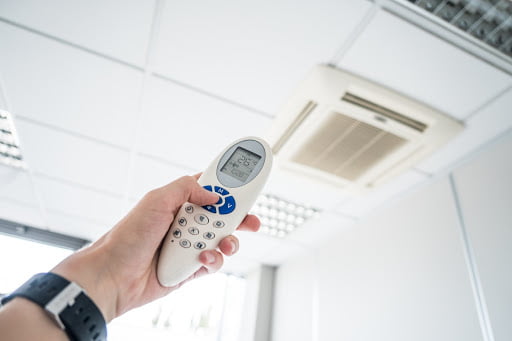
Image Source: No attribution required
By Guest Writer Jennifer McBride,
Do you think that sleep is a waste of time? Think again! Believe it or not, getting good sleep is one of the best things for your body and health. However, unfortunately, more than one-third of Americans sleep less than 6 hours a night. It’s like as soon as your head hits the pillow, your mind overflows with stress, worry, and random thoughts. It’s frustrating – being unable to fall asleep naturally and facing the consequences the next day.
Everyone has their method of coping; some try watching TV shows/movies late into the night until they eventually fall asleep while others incorporate lifestyle changes in their routine like regular exercise, less caffeine, meditation, etc. which they perform irregularly, hence the lack of results.
Ultimately, everyone’s end goal is the same – get better rest and improve the quality of sleep. If you’re here for the same reason, let’s take a closer look at what you can do.
Ready?
Cut down on caffeine –

Image Source: No attribution required
Yes, you can keep your Starbucks Gold card with you but just make sure that you put it away after your cup of coffee in the morning. Regardless of feeling sleep post lunch, we recommend that you avoid caffeinated drinks post noon. Yes, caffeine can keep you from falling asleep, but it also contributes to restless sleep or wakes you up multiple times in the night. Feeling thirsty? Stick to beverages that are non-caffeinated like fresh-pressed juice, seltzer or plain and simple water. For those who cannot resist the urge, if noon is too soon, a more forgiving time is 3 pm. It might take awhile before you are able to eliminate caffeine from your body, take your time. Baby steps.
Exercise –
Exercise can improve every aspect of your life, including sleep. Madonna’s trainer Josh Holland gave us some scoop on exercise and sleep and said that exercise and high-intensity training helps the body’s need to recover and sleep and recovery go hand-in-hand. If you exercise hard enough, the more recovery and sleep your body needs. Working out in the morning not only contributes to good sleep at night but also relieves stress and improves your mood for the day. Breaking out into a sweat at night, before you sleep, is not advised. In fact, working out within three hours of hitting the sack actually makes it harder to sleep!
Unplug –

Image Source: No attribution required
Bright light from your phone screen or computer, even in small quantities, can be a sleep stealer as it impedes the production of melatonin. Before hitting the hay, give yourself some downtime for at least an hour. Turn off your screens and unplug yourself. Unwind in a dimly lit room for improved results. Doing this encourages sleep in several ways, not to mention aiding your neurotransmitters to shift from wake to sleep. The most powerful signal to your brain which sends a message saying it’s time to wake up and feed your chicken is none other than light. Not just sunlight, even blue light from your mobile device, tablet, computer, etc. is ample to trigger your brain to stay wide awake.
Practice yoga –
Yoga is an excellent way to clear your mind and relax your muscles before bedtime. Yoga will teach you that for healthy habits and rituals, you need to be present and productive. Turn inward and look at your breath, spirit and love – the importance of self-care is often overlooked. From simple exercises which involve putting your legs up on the wall for 10 minutes to 10 to 20 slow deep breaths to Surya Namaskar, overall, Yoga helps calm your nerves and relieve stress. Instantly your body goes from fight-or-flight mode to rest-and-digest mode. Yoga, when practiced helps equip yourself with tools to ease your overworked mind which allows you to drift off to sleep and get a good night’s rest.
Take a bedtime bath –

Image Source: No attribution required
After a long and tiring day, there is nothing better than soaking away your stress and preparing for restful sleep. A nice, calm and relaxing way to do so is by indulging in a bath. A bath is already calming, by adding essentials oils to it like lavender, the calmness is enhanced.
After a bath, you can sip on some herbal tea. Herbals teas have been used for over two thousand years to overcome insomnia. They are caffeine free, natural and help you relax with a combination of natural sleep-inducing chemicals and aromatherapy. Lavender, chamomile, or lemon balm teas are a few which are recommended before bed.
Promote healthy melatonin production –
The sun forces you to wake up in the morning, but it’s also a crucial element to help you fall asleep and have a restful sleep at night. Your body depends on natural light to determine the time and decides whether to pump out hormones that will energize you or ones to make you feel calm and sleepy, like melatonin.
Melatonin is a sleep hormone and with the change in light, your body ramps up or down its production.
You’re alert and energized throughout the day because your body doesn’t produce as much melatonin. At night, you feel sleepy because the production is higher.
For a scheduled approach, one way is to flood your body with light as soon as you are out of bed, it’s a clear message to your body to wake up. A simple way to do this is open the blinds or go exercise. Throughout the day, let the natural sunlight flow. Go outside during lunch break or sit near a window. According to a study, this can help you sleep for an hour longer. During the weekend, go on a picnic, hike, cycle instead of chilling on the couch and watching Netflix.
Manage stress –

Image Source: No attribution required
If you find that your mind is racing every time you lie in bed, a deterrent could be stress. Stress steals your ability to fall asleep. According to a poll, almost 40% of Americans state that they often feel fatigued or tired due to stress.
Lack of sleep has you feeling tired and wiped out throughout the day which results in further anxiety, irritability, and stress. Over time, this stress-sleep thing can become a vicious cycle. The key is to nip it in the bud and take precautionary steps to manage stress for a restful, deeper sleep.
Sitting cross-legged and singing your favorite song isn’t a great start. If that’s what helps, then sure. But there are plenty of other useful methods to promote relaxation and relieve stress.
You could listen to relaxing music, journal, try guided imagery or try coloring – who knows what elixir will work for you!
Eat food that is pro sleep and avoid sleep stealers –

Image Source: No attribution required
Don’t be surprised, what you eat and drink plays a vital role in whether you spend half the night tossing and turning or drift off to sleep. There are foods which make you feel drowsy and mattressrelaxed. Add a few foods such as cheese, almonds, salmon, cherries, bananas and low-fat milk to your night snack or dinner. Avoid coffee and other caffeine-rich stuff, alcohol and fatty foods.
The right mattress –
While the factors mentioned above will help you achieve restful sleep, you also need to have the right mattress. Mattresses can be soft, hard, made with foam or spring, no matter the one you choose, it should be comfortable and make you feel good. Moreover, you need a mattress which is the apt size. Full size mattress dimensions will cover your entire bed and spread out well.
Old mattresses tend to be lumpy and bumpy which comes in the way of restful, deep sleep.
The right temperature –

Image Source: No attribution required
For a good night’s snooze, the cooler the better. The perfect temperature would be 16 to 19 degrees Celsius. Typically, above 24 degrees Celsius leads to lighter sleep and more awake time. Similarly, too cold also results in difficulty to fall asleep. Overall, cooler is good. Think of it as an internal thermostat; when you sleep, your body temperature drops, so a cool environment speeds up the process.
A cooler room is also essential for REM sleep, which is considered to be the most restorative stage that leaves you feeling refreshed.
For quality shut-eye you need a cooler temperature; think of it like a quiet, dark cave. Keep in mind that bedding shouldn’t make you feel too hot.
It’s time to take things into your hands
Whether it’s burning the midnight oil, waking up in the wee hours of the day worrying or painting the town red, the quality and quantity of sleep are eroding.
If you don’t get quality sleep, you know you cannot underestimate its value. A solid eight hours of not only improves memory but also makes you productive and alert, reduces stress and keeps illnesses at bay.
The above-mentioned, simple ways may seem unexpected but they work and help improve your sleep.
Try them and see what works. Here’s to better slumber and peaceful nights!
Disclaimer: We at Prepare for Change (PFC) bring you information that is not offered by the mainstream news, and therefore may seem controversial. The opinions, views, statements, and/or information we present are not necessarily promoted, endorsed, espoused, or agreed to by Prepare for Change, its leadership Council, members, those who work with PFC, or those who read its content. However, they are hopefully provocative. Please use discernment! Use logical thinking, your own intuition and your own connection with Source, Spirit and Natural Laws to help you determine what is true and what is not. By sharing information and seeding dialogue, it is our goal to raise consciousness and awareness of higher truths to free us from enslavement of the matrix in this material realm.
 EN
EN FR
FR

























